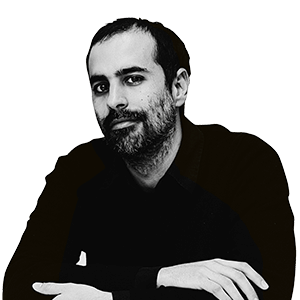Who is Oliver Laxe, the Galician who made Catalan cinema history at Cannes?
The director of 'Sirat', winner of the festival's jury prize, studied in Barcelona and is the only resident of a Galician village.


Special Envoy to CannesTo assess the importance of the Cannes Film Festival Jury Prize won by Oliver Laxe's film Sirado (ex aequo with the German Sound of falling) you can go to the archives: no production with a Catalan majority—and this one is 60% of the time—has managed to win an award in the official competition at Cannes in 78 editions of the festival. It's a historic milestone. But you can also look at another fact: shortly after the announcement of the award for Sirado, the magazine Screen announced that Laxe's film had been sold to more than twenty countries, including all of Latin America, the United Kingdom, Germany, Japan, South Korea, Italy, Türkiye, and the United States.
And this last case is the most significant, because the owner of the rights will be Neon, the distributor that brought Parasites and Anora to conquer the Oscars. So Sirado Not only will it be the Catalan film with the greatest international projection since the Golden Bear ofAlcarràs, but it already has the key ally to perform well in the Oscar race, a possibility that its director contemplates with disbelief. "In the same way that I couldn't imagine that one day I would go to Cannes, I had never projected myself at the Oscars," he explained on Saturday minutes after receiving the award in Cannes, adding: "But Neon has made an incredible offer, they have a lot of confidence in the film and believe that it can connect with many audiences and, above all, with the audience with them, in these young people who have not gone to the cinema for a long time."
The interest in young people has been present in Laxe's cinema since his first film, All of you are captains, the metacinematic exercise that the director carried out based on the filmmaking workshop that Laxe himself developed in Tangier with children from a youth center at risk of social exclusion. Premiered at the Fifteenth Cannes Directors' Festival in 2010, it won the Fipresci International Critics' Award and linked its destiny to the festival, where the Galician has returned with all his films and has never left without an award: in 2016 he won the Critics' Week Award with Mimosas, one western A metaphysical novel about the journey of three characters through the Moroccan Atlas to bury a Sufi master; and in 2019, it won the Jury Prize in the Un Certain Regard section for What burns, a poetic and powerful reflection on the relationship between human beings and the landscape, based on the return home of an arsonist to live with his mother in the Ancares mountain range, where Laxe's grandparents were also from. What burns It was already a small phenomenon: the highest-grossing Galician-language film in history, it won two Goyas and two Gaudís, and was just short of representing Spain in the Oscar race.
Paris, Galicia, Barcelona, and Morocco
In Oliver Laxe's biography, as in his films, the tension between going far away and returning to one's place is present. The director was born in 1982 in Paris, where his parents, Galician immigrants who worked as doormen in a building in the richest and most bourgeois area of the city, went as youngsters. When Laxe was still young, his parents returned to A Coruña, where he grew up. During his adolescence, he took the first steps that led him to become a filmmaker. "When I think about Sirado, I think that in his images there is a sensuality that already existed in the images and sound of what he did when he was taking an image and sound course at school," the director explained on Saturday.
As a young man he went to Barcelona to study for a degree in audiovisual communication at the Pompeu Fabra University, where he forged examples and cinema. Fillol, a screenwriter for his films since Mimosas, where he also began his collaboration with Barcelona-based cinematographer Mauro Herce. After his years in Barcelona, where he learned a Catalan he still speaks fluently, Laxe went to London and shot his first short films. But it was in his next destination, Tangier, where he would truly develop as a filmmaker. In Morocco, he did everything: film workshops for children, television documentaries, and even lived in a palm grove in the desert. "For me, the key has always been to throw myself into the abyss," Laxe explains, adding: "When I went to live in Morocco, I assumed I would always be a sniper. I've never taken the easy path, but rather the essential path, the one that would help me get to know myself."
But the decision in which his taste for difficult paths is most appreciated is not in his films but in the life he leads, since following his return to Galicia and the Ancares mountain range of his grandparents, he settled at the end of the last decade in Vilela, the village in the interior of Lugo What burns, and where he became its only permanent resident. There, where he is still registered today, he created a rural development project to revive the region. In fact, Vilela belongs to the municipality of Navia de Suarna, where this Sunday, just the day after the Cannes award, the presentation of Sirado in the State, with a free screening in the Town Hall Square, featuring the director and its star, Sergi López. This will kick off an intense promotional campaign for the film's official release, which will hit theaters soon: June 6.
